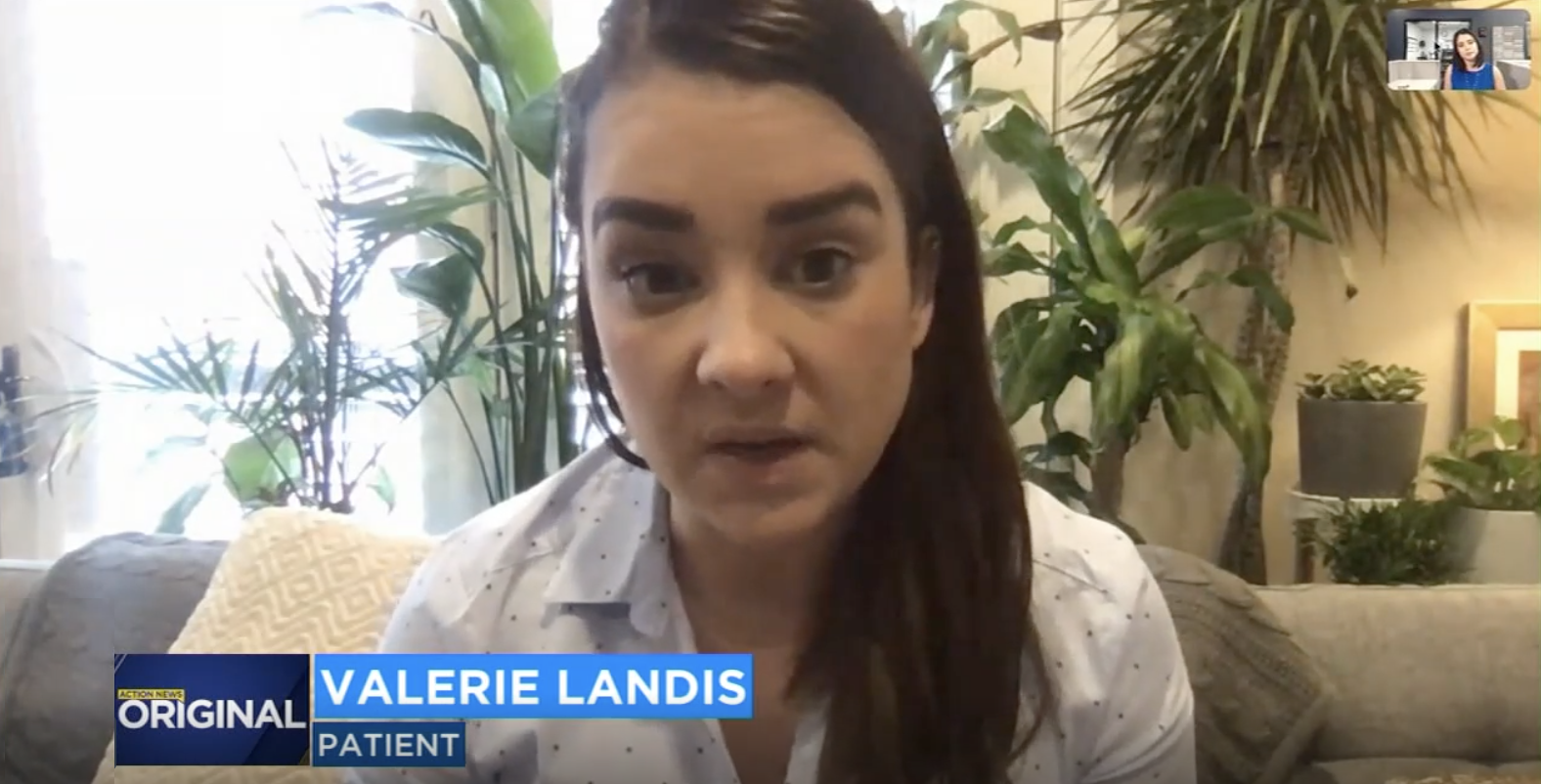
ABC30 By Vanessa Vasconcelos Friday, March 20, 2020 12:42 AM
FRESNO, Calif. (KFSN) — From ancestry to food sensitivity, at-home DNA testing companies are bringing some of the most sought-after answers directly to their consumers, with the swab of a cheek or blood spot.
The latest test proving to be a game-changer when it comes to fertility is ovarian reserve testing. Depending on the company, labs measure a woman’s Anti Mullerian Hormone or Follicle Stimulating Hormone levels to measure potential egg reserves in her ovaries.
Valerie Landis knows the benefits aren’t limited to the convenience. She shares her ‘eggs-perience’ online. “Finding a fertility clinic not knowing what you’re going to get charged, not knowing what is going to be told in the doctor visit, can all be extremely anxiety-filled.”
At 37, she’s gone through the egg freezing process three times. Though a relatively new product, Landis uses myLab Box ovarian reserve test while seeing a fertility specialist, arming her with information to advocate for herself and the ability to check her AMH levels when she wants.
“This has bought me more time and knowing where and how my body is performing is really informative and empowering because I can make different decisions about my life moving forward because I know,” she says.
Lora Ivanova of myLab Box says the ovarian reserve kit is comparable to the process of going to your physician and getting referred to a lab for testing. “You can now screen as much as you need to without having to take additional time out of your day to drive to a lab or clinic,” Ivanova says.
The company pairs results with an online or over-the-phone consult. “If you have any concerns if your test seems high or low or if you’re worried about what this means for your overall fertility plan, you have a physician 24 hours a day that can help answer those questions,” says Ivanova.
Like myLab Box, EverlyWell does a blood spot test. However, they measure the FSH hormone instead of AMH. Registered nurse Angie McLaughlin does consultations for EverlyWell test-takers, helping them better understand their results. “There are some things at home fertility cannot assess for, if there are any physical issues with conceiving,” says McLaughlin.
However, it saves the consumer money on an already costly family planning process. “The hormones are many of the same hormones your doctor will most likely be ordering to do an initial fertility assessment on you as well,” says McLaughlin.
Valley Reproductive specialist Dr. Carolina Sueldo says it’s important to speak with your provider to understand what’s being evaluated and assessed. “Ovarian reserve is part of the standard fertility evaluation. It is something we do regularly; however it’s important to distinguish it does not predict (likelihood of)pregnancy,” says Sueldo. “Those results can be normal and everyone is reassured or they can be abnormal and potentially scare the patient if context isn’t provided.”
She says overall it’s a great start, but because the tests are so new, there’s no long term data to look at. “For the most part it’s helpful to begin the conversation; there may be additional testing warranted,” says Sueldo. At home, ovarian reserve tests cost anywhere from $70 – $150. Most are covered by HSA and FSA plans.
Original link ABC30 posted 20 March 2020: https://abc30.com/6030317/

Its a really nice website. Thanks for giving full information about Cryopreservation. Here is more information: https://www.sridevifertility.com/services/cryopreservation or reach me at [email protected].
I always follow your blog and am very happy that I get to read these blogs. Your written blog is worth praising. keep it up!! check another helpful information about buy clomiphene online to get better treatment of infertility problem for visit here!!!!